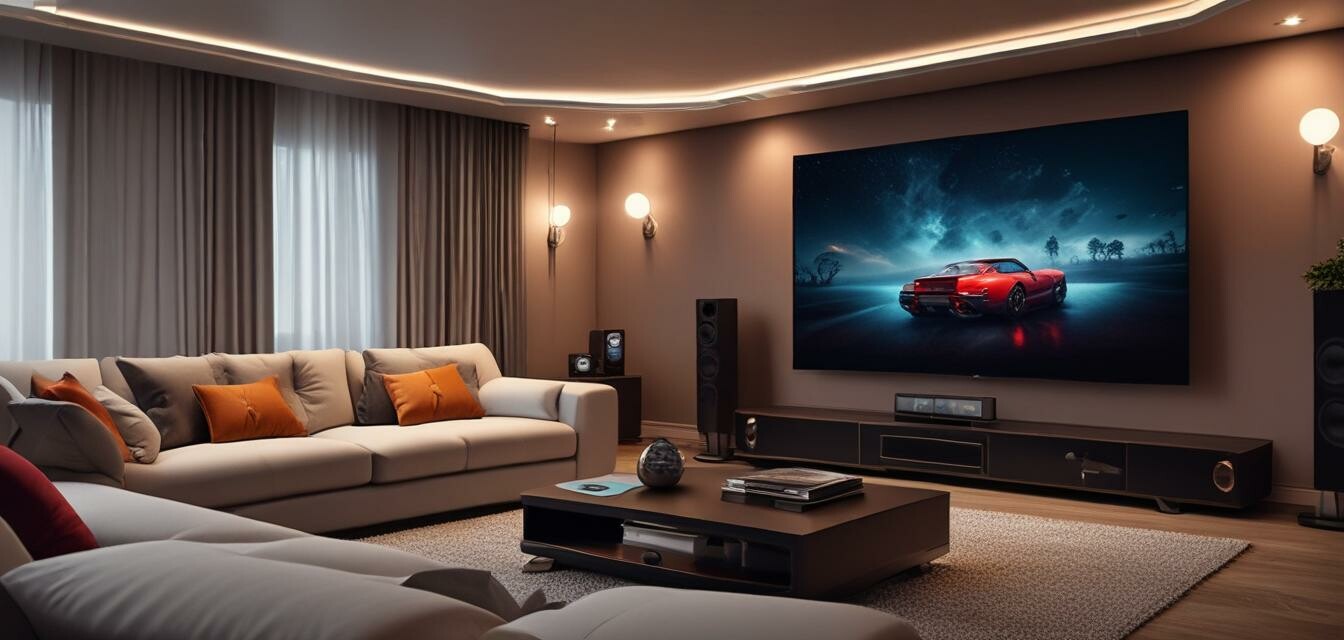
How to Choose the Perfect High-End Projector
Key Takeaways
- Understand the different types of projectors available.
- Consider important features such as brightness, resolution, and contrast ratio.
- Evaluate your room's size and ambient light conditions.
- Know the importance of connectivity options and compatibility with other home theater equipment.
- Compare the cost and value of various high-end projectors.
Selecting the right high-end projector can transform your home cinema experience. With a multitude of options available, understanding key features, specifications, and benefits will guide you in making an informed decision. This guide covers essential aspects to consider when choosing the ideal projector for your luxury setup.
Types of High-End Projectors
High-end projectors come in various types, each with its unique features and strengths. Understanding these types will help you select the right one for your needs. Here’s a brief overview:
| Type | Description |
|---|---|
| LCD Projectors | Utilize liquid crystal displays for bright images and accurate colors. |
| LED Projectors | Use LED lights, offering long lifespans and energy efficiency. |
| DLP Projectors | Employ digital light processing technology for sharper images and better contrast. |
| Laser Projectors | Provide exceptional brightness and color accuracy, ideal for larger screens. |
Essential Features to Consider
When choosing a high-end projector, several important features can greatly enhance your viewing experience. Below are the key features to evaluate:
- Brightness: Measured in lumens, this indicates how well a projector can perform in different lighting conditions. Higher lumens mean brighter images.
- Resolution: Choose between 1080p, 4K, or even 8K for sharper images, especially for larger screens.
- Contrast Ratio: The difference between the brightest white and the darkest black. A higher contrast ratio results in more vivid colors and deeper blacks.
- Throw Ratio: Determines how far your projector needs to be from the screen for optimal image size.
- Keystone Correction: Corrects image distortion when the projector is not perfectly aligned with the screen.
- Lens Shift: Allows for adjustments in the image position without compromising quality.
Evaluating Your Room
Your room's environment plays a crucial role in projector selection. Here’s what to consider:
| Factor | Considerations |
|---|---|
| Room Size | A larger room may require a more powerful projector with higher brightness. |
| Ambient Light | Consider if the room is dark or has a lot of light; this impacts the brightness needed. |
| Screen Size | Select a projector that can accommodate your desired screen size based on throw ratio and brightness. |
Connectivity Options
A high-end projector should have versatile connectivity options. Look for the following:
- HDMI Ports: Essential for connecting media players, gaming consoles, and more.
- Wireless Connectivity: For convenience, consider projectors that support Wi-Fi or Bluetooth.
- USB Ports: Useful for plugging in devices directly.
Comparing Costs and Value
High-end projectors can vary significantly in price. It’s important to find a balance between cost and features:
| Projector Type | Price Range | Value |
|---|---|---|
| LCD | $$ | Good for bright rooms and color accuracy. |
| DLP | $$$ | Excellent for sharp images and contrast. |
| LED | $$ | Long lifespan and energy-efficient. |
| Laser | $$$$ | Exceptional brightness and color accuracy. |
Conclusion
Choosing the perfect high-end projector involves understanding the types available, evaluating important features, and considering your room's specifics. By factoring in connectivity options and comparing costs, you’ll be equipped to make a confident decision. For more information on enhancing your home cinema experience, check out our projectors and screens collection or explore our surround sound systems for a complete setup.
Pros
- Transform your home entertainment experience.
- Wide variety of features and types available.
- Can create a cinema-like atmosphere at home.
Cons
- Can be costly depending on features.
- Requires careful setup and placement.
- Image quality can vary based on ambient light.
Tips for Beginners
- Start by defining your budget and requirements.
- Take your time to compare different models and read reviews.
- Consider visiting a showroom to see models in action.
- Do not overlook the importance of sound systems; they enhance the overall experience.
